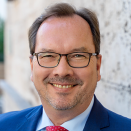How to Fight the New Networks of Terror and Crime
Speakers from businesses, research institutions, police forces, and security services drew attention to the fact that a criminal past, the infrastructure of crime and its illicit ways of financing often pave the way to terrorism these days. Most experts stressed that for a number of recent perpetrators it had been only a small step from petty crime in particular to terrorism and organized crime. Future terrorist attackers often experience violence early in their criminal lives and learn about the support structures of crime with their easy access to weapons and forged documents. This kind of knowledge later helps them to go unnoticed. In addition, Islamist ideology retrospectively gives criminal acts the veneer of legitimacy; the aimless deeds of petty criminals suddenly appear ideologically driven. The experts agreed that the concept of radicalizations thus needs a rethink to include the criminal past of potential perpetrators.
Attention was drawn also to the fact that crime and terrorism are often financed through the same networks and trade routes. One speaker demonstrated how fraudulent bills help support global criminal structures, enabling money laundering and the covering-up of corruption. Therefore, trade policy-makers need to establish early-warning systems to flag up such trade practices.
To fight the new nexus of terrorism and crime, public-private partnerships between businesses and security services have some potential – but only in the realm tracking financial flows, according to the experts. What is needed, though, is a prior political debate about which types of data should be allowed to be converged, and which data protection measures should apply. A representative of a security service pointed out that a wealth of data existed, but that the various types of data were rarely linked.
About one hundred guests with varied political and organizational backgrounds attended. We would like to thank Philip Morris GmbH for their support in making the conference possible.
